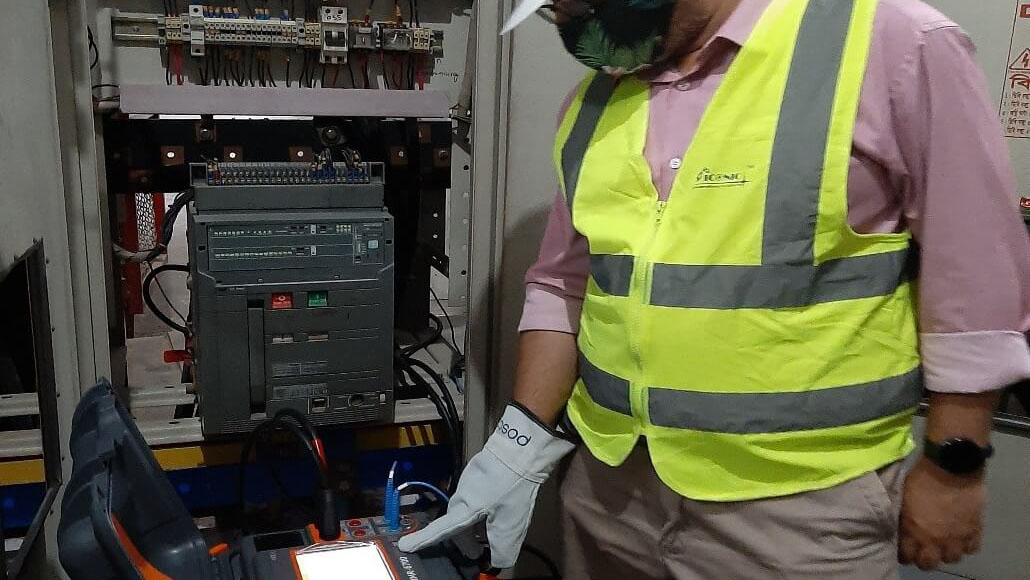
Contact Resistance Testing of Air Circuit Breakers (ACBs): Ensuring Optimal Performance
Introduction:
Welcome to the Pico Labs Ltd. blog, where we aim to provide valuable insights into the world of calibration and services. In this article, we’ll delve into the importance of Contact Resistance Testing for Air Circuit Breakers (ACBs) and how it plays a crucial role in ensuring the optimal performance and reliability of your electrical systems.
What is Contact Resistance Testing?
Contact Resistance Testing is a critical maintenance procedure performed on Air Circuit Breakers to assess the quality and integrity of the electrical contacts. ACBs are vital components in electrical distribution systems, designed to protect circuits from overloads and short circuits. Over time, due to normal wear and tear or environmental factors, the electrical contacts in ACBs may degrade, leading to increased contact resistance.
Why is Contact Resistance Testing Essential?
- Ensuring Electrical Safety: Reliable contact resistance ensures the proper functioning of ACBs, reducing the risk of electrical faults and potential hazards like fires or electrical shocks.
- Preventing Circuit Failures: High contact resistance can cause excessive heating, leading to premature wear of components and, ultimately, circuit failures. Regular testing helps detect issues before they escalate.
- Enhancing Equipment Lifespan: Timely maintenance through contact resistance testing prolongs the life of your ACBs, saving you from costly replacements and downtime.
- Complying with Standards: Adherence to industry standards and regulations is crucial for any business. Regular testing ensures your ACBs meet safety and performance requirements.
The Contact Resistance Testing Process: The process of Contact Resistance Testing involves the following steps:
- Inspection: Our team of qualified technicians will begin by inspecting the ACB for any visible signs of damage, contamination or wear.
- Isolation: The ACB is disconnected from the power source and all connected circuits to ensure safe testing.
- Measurement: Specialized testing equipment is used to measure the contact resistance accurately. This may involve injecting a controlled current and measuring the voltage drop across the contacts.
- Analysis: The obtained results are analyzed to determine the condition of the contacts. Deviations from the acceptable range indicate potential issues that require further attention.
- Calibration (if necessary): Depending on the results, our experts will perform any required adjustments or calibration to bring the contact resistance within the acceptable range.
Conclusion
Contact Resistance Testing is an indispensable aspect of ACB maintenance, as it ensures the safety and reliability of your electrical systems. At Pico Labs Ltd., we understand the significance of this procedure and provide comprehensive ACB calibration and testing services to keep your equipment in peak condition.
By availing our Contact Resistance Testing service, you can rest assured that your ACBs will perform optimally, minimize downtime and comply with the highest industry standards.
Remember, proactive maintenance today can save you from costly repairs tomorrow. Stay tuned to our blog for more valuable insights into calibration and service solutions.

